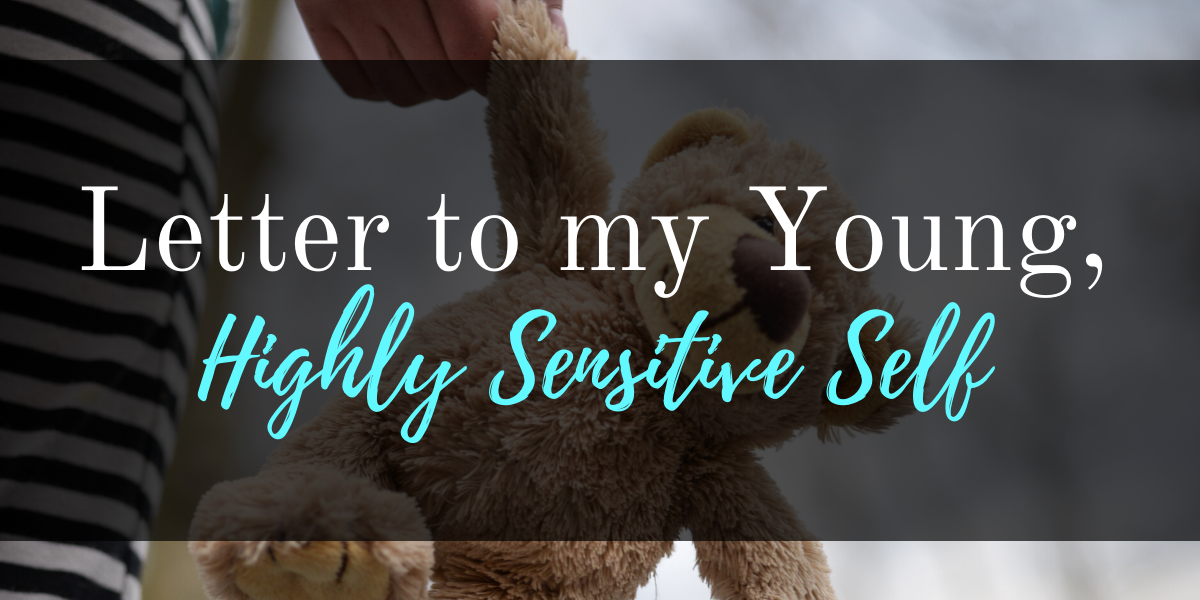Letter to my young, highly sensitive self
Dear Young, Highly Sensitive Person,
The world is hard for you right now, and you have more questions and emotions than answers. The people around you may not understand, and they feel overwhelmed for you and your future. They are concerned. They wonder if the world will break you and that beautiful heart of yours.
Everything feels so much; everything is so much for someone so young.
You wonder why you were born to feel and think about the world on such a larger scale. It is intense, confusing, and frustrating. People call you a crybaby, or sensitive as if it's a bad thing. People start treating you differently or targeting you because they think that's how sensitive people are supposed to be treated, like targets. You hide from the world because it's easier than being hurt, misunderstood, or overwhelmed. It's easier than trying to explain and being shamed for being different. You start to distrust people and their intentions. You wonder if it will always be this way.
Is this a gift or a curse? Why me?
You wonder why other people don't want to talk to you about changing the world. You wonder why you hear, smell, or physically feel things other people don't. You wonder if you're exaggerating because other people don't experience the world this way. They tell you how the world is. Then again, you are only 8 years old, or 10, or 16. You're just a kid.
You are just a kid, AND you see something more in this world. You see purpose, you live compassion, and you breathe possibility. There is more to you, young one. I see it in you, and I will support and nurture you now.
I will honor and protect your innocence by having boundaries.
I will learn more about sensitivities and when our thresholds are being met.
I will make time to play and create: the most important ways of nurturing a sensitive soul.
I will find our tribe, reach out, and practice embracing our authenticity more often.
We will share our sensitive strengths with others.
We will write, speak, and share on this journey because it is something to connect others with, it is not to be ashamed of.
We will be realistic about how much we can do every day. Each person is different. We can grow in our own ways, not comparing ourselves to unattainable ideals.
We will learn to embrace our sensitive self while building a thicker armor to live in a world that can be harsh at times.
The journey is tumultuous, and I am thankful to be here to grow with you now. It was worth every effort to nurture you so far.
Boonie



